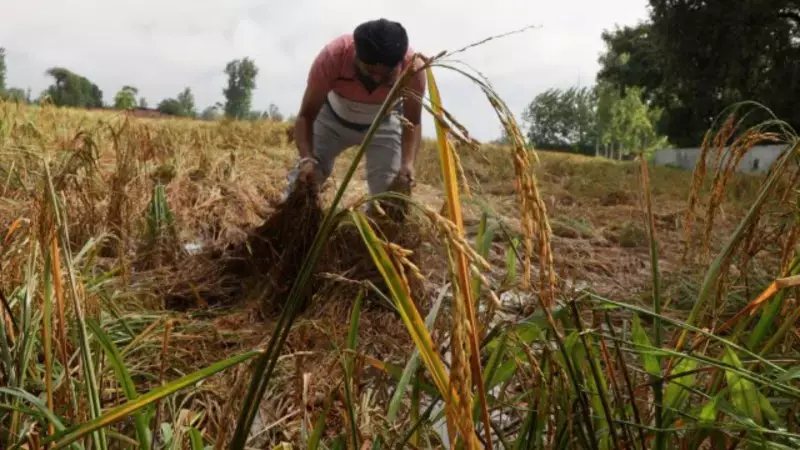
MOGA: Tensions escalated in Punjab's Moga district as police detained 36 farmers during a dramatic 'rail roko' protest that brought train services to a grinding halt on Thursday. The farmers, demanding a legal guarantee for Minimum Support Price (MSP) and complete debt waiver, blocked railway tracks in a show of strength that lasted for several hours.
Protesters Bring Rail Traffic to Standstill
The agitation, organized by prominent farmer unions, saw hundreds of cultivators gathering on railway tracks near Moga station. The protest completely disrupted rail movement on the busy Firozpur-Ludhiana section, affecting multiple passenger and goods trains. Commuters faced significant inconvenience as services remained suspended during the peak protest hours.
Key Demands Behind the Agitation
The protesting farmers have put forward several crucial demands that have been at the center of agricultural protests across North India:
- Legal guarantee for MSP on all crops
- Complete waiver of agricultural loans
- Implementation of the Swaminathan Commission recommendations
- Compensation for families of farmers who died during previous protests
Police Response and Detentions
District authorities swung into action as the protest intensified. Moga police officials confirmed that 36 farmers were taken into preventive custody to clear the railway tracks and restore normal traffic. The detainees were reportedly released later after the protest was called off.
"We had to take necessary action to maintain law and order and ensure the resumption of essential rail services," stated a senior police official from Moga district.
Ongoing Farmer Unrest in Punjab
This protest marks the latest chapter in the continuing farmer agitation that has been simmering across Punjab. Farmer unions have been organizing various forms of protests, including road blockades and rail roko agitations, to pressurize the government into meeting their demands.
The movement has gained significant traction in the agricultural heartland of Punjab, where farmers have been grappling with rising input costs, mounting debts, and uncertainty over crop prices.
As the standoff continues, all eyes are on the state and central government's response to the farmers' persistent demands that have become a flashpoint in Punjab's political landscape.






